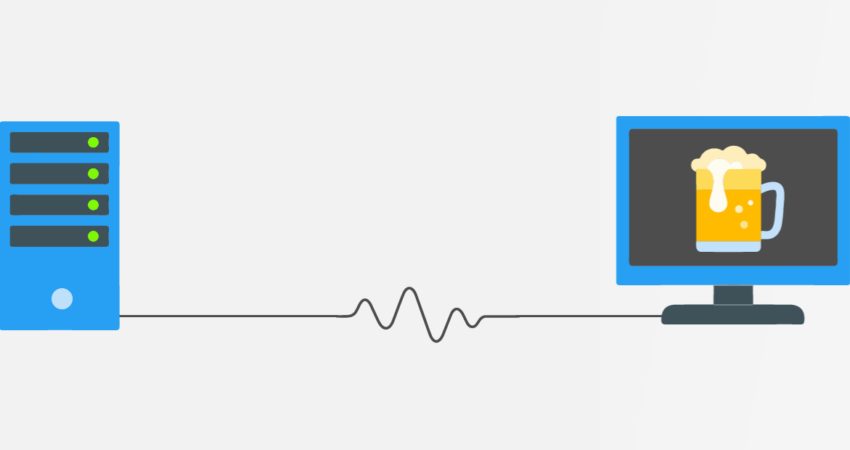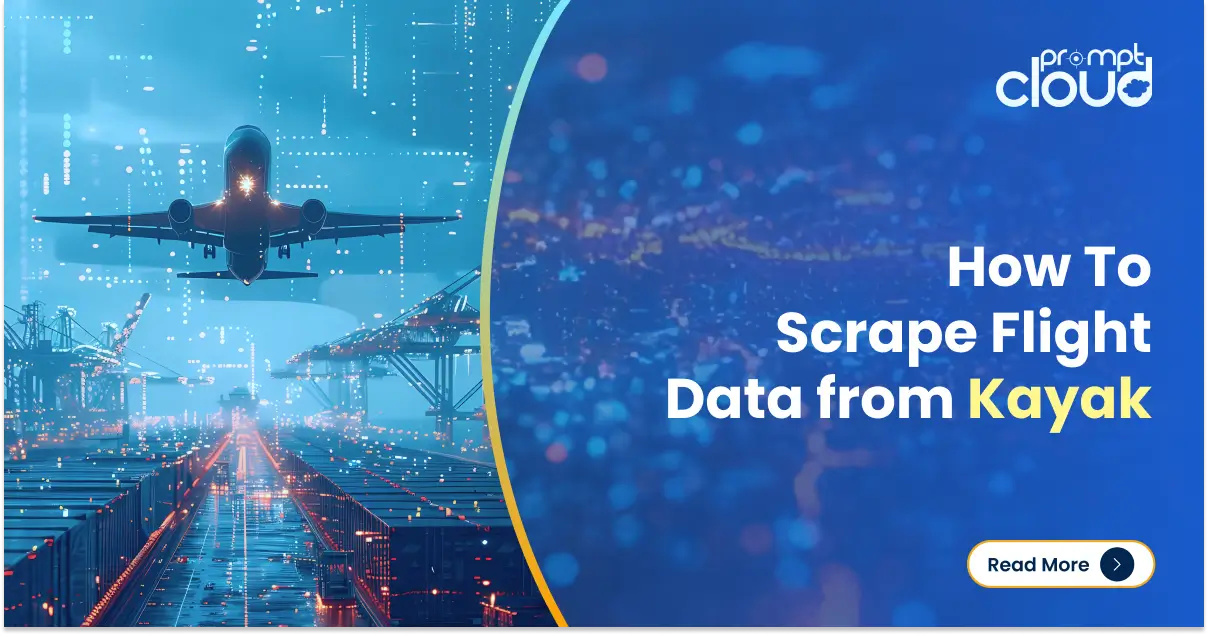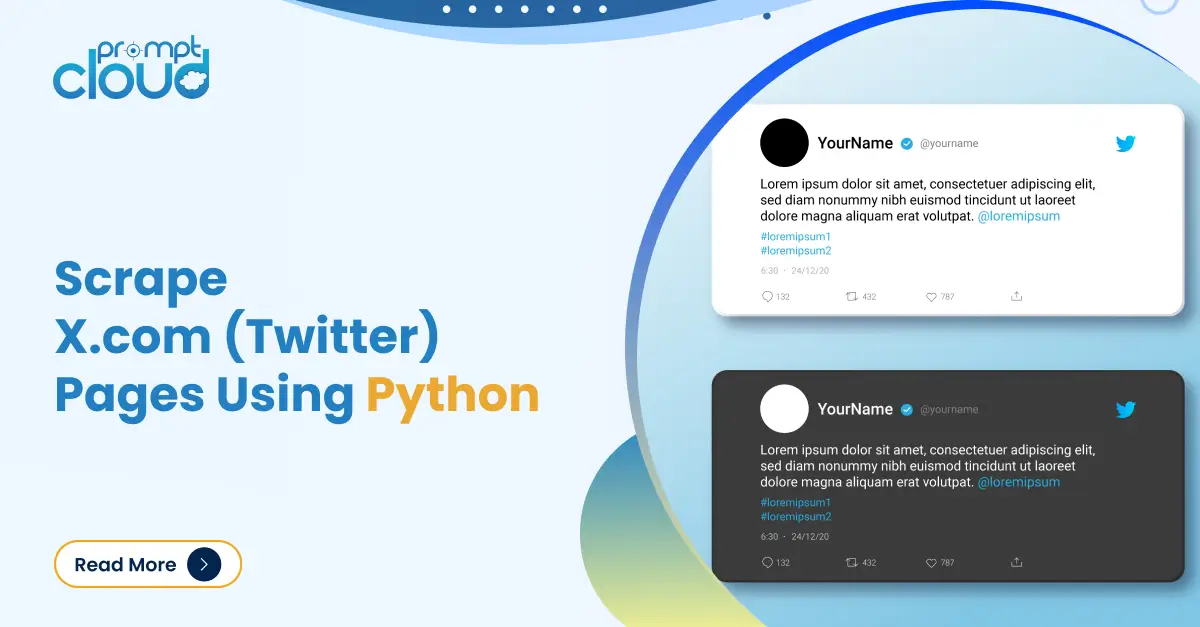
In the age of big data, data extraction is vital for all businesses. Data harvesting can give companies many advantages and, most importantly, it will get the business to a highly competitive place. By conducting market research via data harvesting, the business gets access to up-to-date information regarding the industry, or any related topic. By being informed of what’s happening in the market, your business can respond to any changes accordingly, minimize losses, and maximize sales.
With data harvesting, here comes – Web Scraping and APIs.
Web Scraping vs API: What’s the Difference?
Web scraping and API scraping are the most practical ways of data harvesting. Web Scraping refers to the process of extracting data from a website or specific webpage. While an API (Application Programming Interface) is a set of procedures and communication protocols that provide access to the data of an application, operating system, or other services.
When it comes to web scraping, Application Programming Interfaces aka API is the go-to solution that comes to the mind of most data engineers. But is web crawling API the right solution for your business? So, is web scraping a better alternative for data extraction?
API (Application Programming Interface) is an intermediary that allows one software to talk to another. In simple terms, you can pass a JSON to an API and in return, it will also give you a JSON. Now, there always exists a set of rules as to what you can send in the JSON and what it can return. These rules are strict and can’t change unless someone actually changes the API itself. When using a data API, you will be strictly governed by a set of rules, and there are only specific data fields that you can extract.
Web scraping is much more customizable, and complex, and not governed by a strict set of rules. You can get any data that you can see on a website using a web crawling and scraping setup. As for how you can crawl data, you can apply any techniques available, and you are constrained only by your imagination. If you have an experienced team, you can even try to find new means to crawl data from websites that have dynamically generated feeds. But as you see, websites change their layout every day, and you would have to change your scraping code from time to time to make sure that everything keeps working.
Advantages of APIs
If web scraping is better than APIs, why do most people continue to use APIs? Well, the reason is very simple. Most people keep using the same API to get the same data, from the same source for fulfilling their specific objectives. Also, they might have a contract with the website to use their API within a certain limit. Using web scraping API works well when the website changes are limited. In case new information is to be returned by the API, or some field names change, all you need to do is add those field names, or change the names of those field names in your request JSON.
When regular and similar bulk data extraction is the requirement, API can be the way to go. It can help is automating the data extraction process, including all kinds of documents from pdfs to images and invoices. The issues arise whenever there is an update in the source sites, formats, or fields. Thus making API an unreliable solution to web scraping.
Advantages of Web Scraping
Let’s break down the advantages into a few simple easy-to-understand points.
1. No More Rate Limiting
When you use an API, you are given certain limitations. With web scraping, there are no limits (at least technically). Most APIs have limited usage policies unless you are paying for their premium version. The free API will let you send around ten to a hundred requests per day. But in case you are using the API continuously, you might end up sending thousands of requests over the entire day. This might lead to a costly agreement getting signed between you and the person who owns the web scraping API.
When you are scraping, you are legally free to crawl any data from any website. However, you are not supposed to crawl websites whose robot.txt asks you not to crawl their data explicitly. Most websites actually allow scraping. How do I know that? Well, any website that comes up in a Google search has already been scraped and indexed by Google, so theoretically be it Google, or you, anyone can crawl it. But always make sure you read and respect the robots.txt file on the site and be on the safer side.
2. Not all Data is Available via API
An API is related to a specific website. New websites are cropping up every day, and in this scenario, it is better to follow the data trail, instead of blindly using an API, since an API will never provide you with all the data out there on the web.
When you scrape the web, you can pick up links inside articles or pages that you have already scraped and then use those links to find related content and information, thus creating a chain of interlinked sets of data that can be used for different purposes. It can happen automatically, using the same script that you write to crawl a single page. Thus you are allowing the data to lead you to a conclusion by letting it run free, and not binding it within rules and protocols. When compared to web scraping, API falls behind in terms of available data points.
3. Lack of Customization Options with API
With web scraping, you can customize any and every aspect of the data extraction process starting from the fields, frequency, format, and structure, and even get geo-specific or device-specific data by changing your crawler’s user agent. This amount of customization is simply not possible with an API. When you go with a website’s API, you are limited in so many ways with little to no customization options.
4. Not all Websites Provide a Web Scraping API
All this while, we were speaking of the difference between using an API and web scraping. But that means we are hoping that every website will let you access their stored information by both means. That is completely wrong. Very few websites will actually let you access their data (even if that means limited or controlled data). Most websites will not allow you to access their APIs. This means when you are on to set up your own fashion E-Commerce store and try to get data from your competitors, you will obviously find no APIs and will have to code customized scrapers.
And it is not just about E-Commerce companies. In a majority of businesses, you will have to crawl data from your competitors to remain in the competition. Data is freely available on the internet and anyone can open a website on their browser and see it. Whether you want to tap this infinite source of data using web scraping and use it to your advantage is all up to you.
PromptCloud’s Web Scraping Service
In case you are wondering how to replace old APIs that you use in your business with web scraping engines, you can put together a team of Python and R developers who have had previous experience in web scraping python, in case your business revolves around the scraped data entirely and you have the capital to invest in such a team.
What would be much easier is to take the help of a well-experienced team like PromptCloud whom you can just provide with your requirements. The rest will be taken care of by the completely managed service provider. Web Scraping is a dynamic field with intelligent scraping bots and dynamic web pages coming into the picture. The technology that is a hit today might be an old relic in the scraping world tomorrow. So it’s best if you leave the scraping to web scraping providers.




















